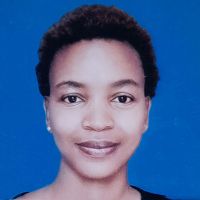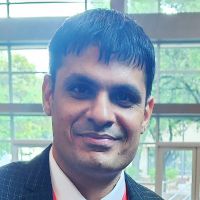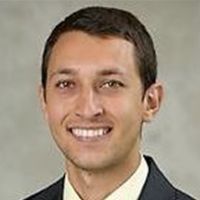
The deadline for sending letters of Intent is on April 30th, 2025. All applicants will receive an email confirming receipt of their LOI and will hear back shortly whether they are eligible to submit a full application.
Overview

Anil Kharga
Title: Regeneration of Split Liver on a Pump using Cirrhotic Serum
Mentor: James F. Markmann
Institution: University of Pennsylvania, USA

Keyue Sun
Title: The Impact of Machine Perfusion on Immune Response and Live Birth Rate after Allogenic Uterus Transplantation
Mentor: Andrea Schlegel
Institution: Cleveland Clinic, USA

Tess Van Meerhaeghe
Title: Immune Checkpoint Inhibitors in Renal Transplant Patients
Mentor: Alain Le Moine
Institution: Hôpital Erasme, Belgium

Fransia Arda Mushi
Title: Renal Transplantation Ecosystem Assessment in Tanzania, a Mixed Methods Study
Mentor: Francis Furia
Institution: Muhimbili University of Health and Allied Sciences (MUHAS)
Summary: The demand for Renal Replacement Therapy (RRT) is increasing globally. Only 3% of people with End Stage Renal Disease in East Africa receive any RRT. Tanzania's government has made significant efforts in establishing RRT services including nephrology services in the majority of tertiary hospitals and two national renal transplant (RT) programs. Challenges impacting equitable access to RRT services are multifaceted and complex, especially in resource-limited settings. Multidisciplinary team efforts are required for RT programs' sustainability and success. In response, the overall aim of our project is to form a basis for quality research in this area, and using funds from The Transplant Society (TTS) Research Grants we are going to determine the barrier and facilitating factors as well as the capacity to support RT services expansion employing a mixed methods approach.

Devprakesh Choudhary
Title: SAFE-NMP: Safety Assessment For Extended Normothermic Machine Perfusion in Deceased Donor Kidney Transplantation - A Single-Center Pilot Study
Mentor: Ashish Sharma
Institution: Postgraduate Institute of Medical Education and Research (PGIMER) Chandigarh INDIA
Summary: The SAFE-NMP pilot study explores the safety and feasibility of extended normothermic machine perfusion (NMP) in preserving deceased donor kidneys prior to transplantation. By enhancing metabolic recovery and reducing preservation injuries, NMP offers benefits like reliable organ viability assessment and improved logistics. This study will compare kidney graft outcomes between extended-NMP and the traditional static cold storage (SCS) and will also assess the optimal period of NMP in deceased donor kidneys.

Abraham Matar, MD
Title: Use of a Novel Anti-Humoral Therapy - IdeS – as a Desensitization Strategy in Xenotransplantation
Mentor: Andrew B. Adams, MD PhD
Institution: University of Minnesota
Summary: Dr. Matar’s research will focus on strategies to prevent antibody-mediated rejection in xenotransplantation. Specifically, Dr. Matar will study the efficacy of IdeS, an antibody-degrading enzyme with specificity for IgG, as a desensitization strategy in a pig to primate model of kidney xenotransplantation. Dr. Matar will be mentored by Dr. Andrew Adams, MD PhD, currently a Professor of Surgery and chief of the Division of Transplantation at the University of Minnesota.
Detailed Information
- The three seeding grants, at $25,000 each, will provide support to clinical, basic and translational scientists working within the field of transplantation. Research must commence on September 1, 2025 and conclude on October 31, 2027.
- Up to $25k per year for up to 2 years with requirement for annual reporting. The extra 2 months is intended to provide buffer for start-up, i.e. 14 months first period and 12 months second period
- The research start date cannot be deferred for any reason.
- Applications must be submitted in full by June 1, 2025 in order to be reviewed.
- The recipient will sign a letter of agreement with TTS. Payments will be issued to the recipient’s institution by TTS, and the recipient will report to the TTS Research Grant Committee.
- The Applicant
- The applicant (MD, PhD, PharmD, or equivalent degree) must be within the first five years of research in transplantation since starting their post-doctoral training by the grant application deadline (June 1, 2025). Applicants who have worked in other fields or taken a leave of absence are eligible beyond this five-year period for a corresponding extended period.
- Throughout the period of the grant, the applicant must be considered early in their career and may not hold an independent faculty level position or a salaried senior staff position (or equivalent).
- The applicant’s research must commence prior to or on the start of the grant term (September 1, 2025).
- The successful applicants are expected to submit an abstract to the TTS Congress that follows their end of their research grant term.
- Applicant’s Sponsor and Institutional Support
- The applicant must have a sponsor/mentor that is a faculty member at the same institution
- Applicants who have a substantial relationship with anyone on the TTS Research Grants Committee that would present a real or perceived conflict of interest if awarded this grant should review this concern with the committee to declare the conflict before applying.
- Only one TTS Research Grant will be awarded per person. If more than one grant from a given faculty member is submitted and deemed competitive, TTS will make the final determination of which grant to fund.
- If the applicant’s sponsor departs or is planning to depart the institution prior to the commencement of the grant (September 1, 2025), the following applies:
- If the departure occurs after the submission deadline, the applicant will not be eligible for funding and their grant withdrawn, as an evaluation of the sponsor is part of the scoring procedure.
- If the departure occurs after a grant has been awarded and the grant has commenced, funding will be suspended. Reinstitution of the grant will be at the discretion of the TTS Research Grants Committee, contingent upon satisfactory replacement of the sponsor and other factors. Awardee will be responsible for notifying TTS of these circumstances as soon as they are aware.
- TTS membership: The applicant’s sponsor must be an active member of TTS or have submitted a completed membership application deadline.
- Previous Funding/Funding from Other Sources
- The applicant may be a past recipient of other TTS foundation fellowship research grants.
- The applicant may currently hold career development awards, or mentored scientist award.
- The applicant must not hold a concurrent TTS research grants.
- Miscellaneous
- Citizenship: There is no restriction on citizenship.
- Laboratory: there is no restriction on laboratory location/country.
- A progress note and plan will be required to be submitted in order to receive a second year of funding.
- Any manuscripts that derive from work funded by this grant should be submitted to Transplantation for first right of refusal.
Applications that do not conform to these guidelines will be returned without review.
Please note, only applicants whose notice of intent is accepted by our peer-review committee will be eligible to submit a full grant application
Download the Application Cover Page Details (.pdf)
- Name, title, and institution of applicant investigator, sponsor/mentor, and/or key collaborator(s)
- Abstract of the proposed research plan: This document should concisely summarize the project in 350 words or less. The abstract should introduce the project and note its relevance to transplantation. It should describe the long-term objectives and specific aims, research design, and methods for achieving these goals.
- Applicant’s biosketch (maximum-5 pages, 12 font, Times News Roman, single space, 2x2 cm margin) to include all usual and pertinent information, particularly describing other past and current research funding and prior published work.
- The biosketch of the sponsor/mentor
- Complete proposed research plan: This document is limited to five pages (12-font, Times News Roman, single space, 2x2 cm margin); the page limit does not include references. The following sections must be included:
- Aims: include the key questions posed or hypotheses to be tested
- Introduction: provide the rationale for the research
- Preliminary Results (if any): show preliminary results supporting the research plan
- Research Plan: explain how the questions or hypothesis will be studied, with emphasis on experimental design over the details of the specific methods to be used. Anticipated results and potential pitfalls and alternative approaches should be briefly discussed. Specific research (and, if applicable, training) goals to be reached at the end of the grant should also be provided.
- Significance, feasibility and outcomes of the research.
- Detailed budget
- The research plan should include a description of relevant facilities/capabilities
- Mentor narrative: should not exceed three pages and should include:
- A concise description of the overall research plan.
- A description of the training program in addition to research project itself.
- A compilation of pertinent facilities and resources that are available to the applicant.
- A description of the mentor's background in supervising the research and training of students and postdoctoral fellows.
- The role of the applicant in the project.
- The mentor’s evaluation of the applicant's experience and performance, future potential, and the degree of previous interaction with the applicant.
- An explanation of any mitigating or additional factors that need to be considered in terms of eligibility (e.g. account of extra years or a change in research field).
- A guarantee of minimum protected time of 50%.
- Budget: The grant is intended to provide salary support for the researcher and supplies/materials. No other costs are permitted, including institutional overhead or travel.
- All application materials should be sent to Jennifer.Groverman@tts.org by June 1, 2025 in one pdf file. File name should include applicant's full name.
- Letters of Intent are due by April 30, 2025.
- Proposals are due by June 1, 2025.
- Funding decisions will be made by an expert review committee from TTS. Submissions will be scored based on novelty, research approach, feasibility of obtaining relevant data, prior work, and the qualifications of the mentor, including prior productivity and mentoring experience.
- All applicants will be notified of their application status in July 2025 (one month post submission).
- For the selected individuals, the term of the grant will begin September 1, 2025 (four months post submission).
Contact
Address
The Transplantation Society
International Headquarters
740 Notre-Dame Ouest
Suite 1245
Montréal, QC, H3C 3X6
Canada
